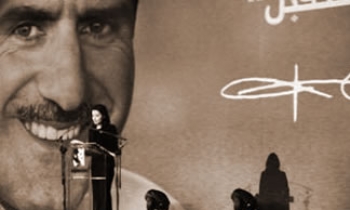A Swedish journalist who spent four years in an Eritrean prison for demanding press freedom in the east African country was unexpectedly released Saturday. Dawit Isaak was "feeling really well" after leaving prison, said Leif Obrink, the leader of a Swedish organisation that had fought for the journalist's release.

Dawit Isaak, 41, who has been a Swedish citizen since the 1980s, was released on the morning of November 19, 2005 from Karcheli Prison in the Eritrean capital of Asmara. He was able to telephone his wife, who lives in Sweden, as well as Leif �brink, chairman of the "Free Dawit Isaak" campaign.
Isaak's wife, Sofia, said she cried when her husband called their house in Gothenburg on Sweden's southwestern coast. "I had not heard his voice for four years, not known whether he was alive or dead," she told Swedish news agency TT. Obrink said Isaak, who has three children, planned to return to Sweden.
Obrink credited diplomatic efforts by Swedish Ambassador Bengt Sparre, who has spent several months pressuring Eritrean authorities to release Isaak. "I think it has a lot to do with (Sparre's) efforts," a family friend said.
Swedish foreign minister Laila Freivalds said she felt relieved after hearing about the release, Swedish news agency TT reported. "I have met his wife Sofia, and talked to his children and understand what an extremely terrible situation this has been for them," Freivalds was quoted as saying.
Isaak came to Sweden in 1987 as a refugee from Eritrea's bloody war for independence war. He lived in Lerum, worked as a cleaner and became a Swedish citizen in 1992. When Eritrea gained independence in 1993, Isaak returned to his native country. He got married and had children. Eventually he became a part-owner of the country's first independent newspaper, Setit, where he came to work as a reporter.
But the country's independence proved fragile: in 1998, the conflict with Ethiopia unexpectedly flared up again, leading to a devastating border war. Isaak returned to Sweden, preparing to bring his family to safety. His wife and three children followed in April 2000. They settled down in Gothenburg. A year later Isaak again travelled to Eritrea.
That spring, Asmara was boiling with political activity. The border war had caused an intense political debate. A group of 15 cabinet members demanded, among other things, democratic reforms and a thorough, objective evalutation of the events leading to the war. In May that year, when the demands of the dissidents had not gained a hearing, they put their critique on the internet in an open letter to the PFDJ.

The letter was published by the free press, along with analyses, comments and interviews with several of the 15 politicians. Then, while the international community turned its gaze toward the ruins of World Trade Centre, the government struck back against the reformists. Within a few days, 11 of the politicians were arrested, as were ten of the leading journalists from the free press including Dawit Isaak.
He was first held at a police station in Asmara before being transferred in March 2002 to the Halibet hospital where he was treated for the effects of abuse suffered in his cell. Since his arrest the Swedish authorities have on several occasions tried to visit him, but the Asmara government always refused to allow it.
Reporters sans Frontières (RSF) welcomed the release of Isaak, but said the good news was tempered by the fact that 12 other journalists have been held somewhere in the country for more than four years without trial and completely cut off from the outside world.
"The interminable torment the Eritrean government has inflicted on Dawit Isaak has finally ended," said RSF. "We share in the happiness and relief of his friends and family after more than four years of silence and distress."
"It is painful to think that 12 of his colleagues are still being held hostage by the iron regime of President Issaias Afeworki," said RSF. "Nothing can justify the fact that the journalistic elite of the country, that did not have the chance to flee in time, should still be missing inside Eritrean jails.
"We hope that the release of our friend Dawit Isaak will serve to show the international community what it costs to make democratic claims in Asmara and that it is urgent that his colleagues who are still being held prisoner should be released as soon as possible," RSF said.









